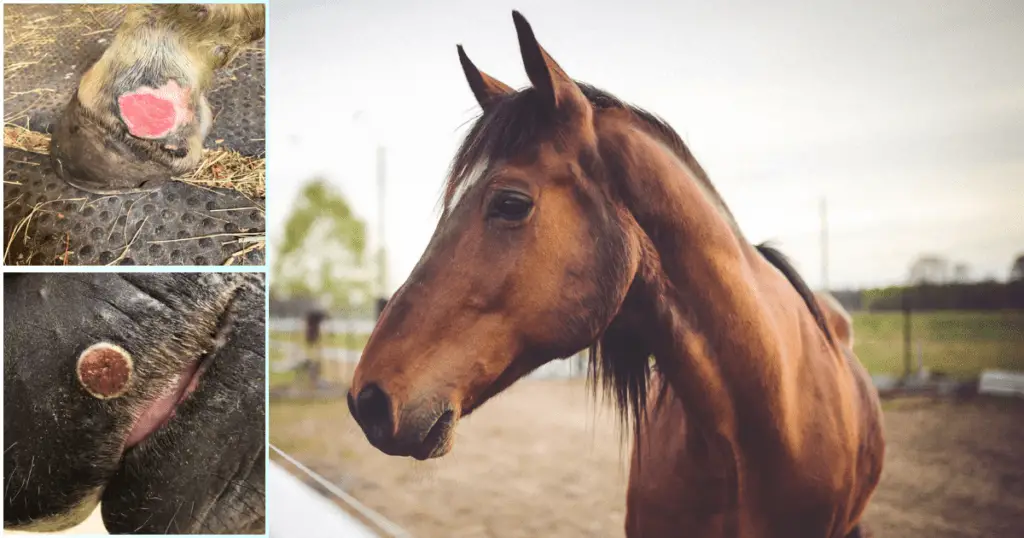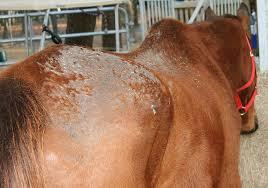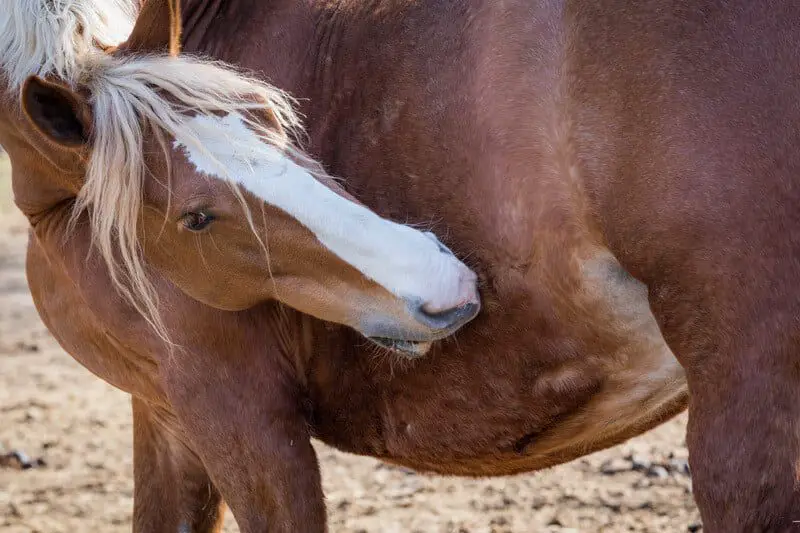What are summer sores in horses?
Summer sores are a common problem among horses during the warmer months. As a horse owner, it’s important to know what summer sores are, how to treat them, and when you need to call your vet. Summer sores, also known as cutaneous habronemiasis, are caused by larvae of worms that can be found in the environment. These larvae can enter a horse’s skin through a wound or a fly bite, causing a painful and itchy sore that can be difficult to treat. The larvae are carried by flies and when they bite your horse the larvae can be deposited into the bite by the fly. If you suspect that your horse has a summer sore, it’s important to take action quickly. While some cases can be treated at home with over-the-counter medications, others may require veterinary intervention. Knowing the signs and symptoms of summer sores can help you determine when it’s time to call your vet for help. Causes of summer sores The main cause of summer sores in horses is the larvae of the stomach worm, Habronema spp. These larvae are transmitted by flies and can infect the skin of horses. The larvae can enter the skin through a wound, such as a cut or abrasion, or through the mouth, nose, or eyes. Moist areas such as around the eyes, mouth, and genitals are particularly susceptible to infection. Symptoms of summer sores The symptoms of summer sores in horses can vary depending on the severity of the infection. Common symptoms include: If left untreated, summer sores can become more severe and lead to secondary infections, which can be more difficult to treat. How to Treat Summer Sores in Horses Home Remedies As a horse owner, you may be able to treat summer sores in your horse with some home remedies. One of the most common remedies is to keep the wound clean and dry and prevent flies from landing on any open wounds/sores. You can also apply a topical ointment, such as aloe vera or tea tree oil, to the wound to help promote healing. Another option is to use a poultice made from Epsom salt and warm water. Apply the poultice to the wound and wrap it with a bandage to keep it in place. This can help reduce inflammation and promote healing. Medications If home remedies are not effective, your veterinarian may prescribe medications to treat the summer sores. One common medication is ivermectin, which is an anti-parasitic medication that can kill the larvae in the wound. Applying an oral horse wormer topically tothe wound can kill the larvae within the wound. Other medications may include corticosteroids, which can help reduce inflammation and itching, or antibiotics, which can help prevent infection in the wound after the larvae have been destroyed. Surgical Options In severe cases, your veterinarian may recommend surgical options to treat the summer sore. This may include debridement, which involves removing the damaged tissue from the wound, or skin grafting, which involves taking healthy skin from another part of the horse’s body and transplanting it onto the wound. Surgical options are typically reserved for cases where the summer sore is large, deep, or has not responded to other treatments. Do I need a vet for summer sores in horses? When to call a vet If you notice any signs of summer sores in your horse, it is important to contact your vet as soon as possible. Your vet can help diagnose the condition and recommend the best course of treatment. Additionally, if your horse is experiencing any discomfort or pain, it is important to seek veterinary care to ensure that your horse is as comfortable as possible. What to expect from a vet visit When you bring your horse to the vet for summer sores, your vet will likely perform a physical examination to assess the severity of the condition. They may also take a sample of the affected tissue to help diagnose the problem. Based on their findings, your vet may recommend a course of treatment, which may include topical or oral medications, wound care, or other therapies. In general, it is important to follow your vet’s recommendations closely to ensure that your horse recovers as quickly and comfortably as possible. With proper care and treatment, most horses are able to recover fully from summer sores without any long-term complications. Overall, while it may be tempting to try to treat summer sores on your own, it is important to seek veterinary care to ensure that your horse receives the best possible care. By working closely with your vet, you can help your horse recover quickly and comfortably from this common condition. Read more About Horse Skin problems




